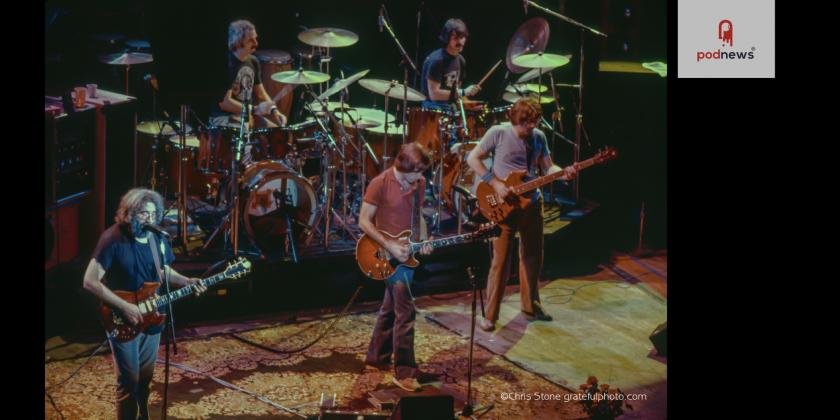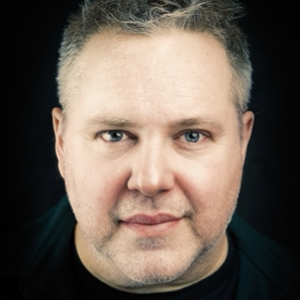
The Story of the First Podcast Feed

Whenever people argue about the first podcast, the conversation usually settles on Chris Lydon’s recording of the first Open Source episode on July 9th, 2003. And there is no doubt that Lydon’s interview recording was the first original production made specifically for podcasting (Here is a blog post that talked about all the tech that was required to convert an unused office into the first podcast studio, which is entirely amusing now, and here is a rabbit hole where you might be able to actually hear those early episodes).
But that Open Source episode wasn’t the first podcast. The first podcast occurred 900 days earlier, on January 20th, 2001.
Before we talk about that first podcast feed, let’s review the poorly documented history of podcasting, often revised by those who wish to include themselves or exclude others. ;) I am not one of those people, so here is my (actually researched and reported) take:
Podcasting came into reality in a New York City hotel room in October of 2000. No one can remember which hotel it was, though Dave Winer recalls it was a “fancy rock star type hotel.” He remembers that because he was meeting with Adam Curry, a former VJ from MTV, who Dave said was “something of a rock star himself.” Adam was visiting from Belgium, where he was living at the time, and wanted to meet up with Dave to share an idea he’d had.
Dave Winer had been an early pioneer in blogging, having created RSS (short for “Really Simple Syndication”), the technology that drove a lot of blog infrastructure and distribution technology. Dave basically invented blogging as we know it by creating the systems that made it possible. Dave Winer has actually been a pioneer in a lot of things. He doesn’t like thinking of himself as a software developer, which feels like an oversimplification for him. He refers to himself as a “media hacker.” He has spent a lot of his career thinking up new media types, then building software to make that new media type possible. Early in his career he developed scripting environments, online publishing tools, Outline Processor Markup Language (OPML), and a lot of other things that most people wouldn’t understand but were essential in making modern digital syndication possible.
But more important than any specific technological advancement, Dave Winer thought differently about how to use the Web to deliver information. Dave believed in making systems open, democratic, and easily accessible, going against the prevailing tide to make material on the Internet as proprietary, controlled, and commercialized as possible. Winer made subscribing to content on the Internet possible, so that users could receive information from sites they wanted to follow as a “feed” of up-to-date information.
Even though Adam Curry is probably best known for his seven years as a VJ for MTV, he has had a lot of facets to his career since then, mostly as an early advocate and entrepreneur for Internet-related businesses. In 2000, he was a big fan of Dave Winer’s work on RSS. Adam wanted to pitch Dave the idea of using blogging technology to distribute digital audio files. Adam had even rewritten some of Dave’s RSS code to support the idea of distributing audio instead of text: audio blogging.
When they met in Adam’s hotel room, Adam made his passionate case for the idea and its potential to really leverage the Internet to revolutionize radio, audio, or any form of shared sound. Adam was gesticulating and trying very hard to explain. Dave listened and didn’t get it.
Shortly before that meeting, Adam had published a thought piece called “The Last Mile.” I’ve tried for years to find that piece, and no one—even Adam—seems to have a copy, though lots of people remember reading it. It argued that “always-on” cable modems in the home (not quite robust enough to be called “broadband,” but a huge step forward from dial-in modems using telephone lines) offered an opportunity to rethink how to distribute audio files, which were monstrously huge compared to text, or even pictures. At that time, there was a “click, wait” problem with audio and video media on the Internet. You would click to listen, then wait, often for a long time. The choke point was the last link in the chain, the Internet connection to the user’s home, a.k.a. the last mile. But Adam suggested that the “always-on” cable modem wasn’t being utilized all the time. At night, for example, it just sat there largely unused. What if you could find a way to use that downtime to go grab larger files so they would be ready to listen to when you woke up in the morning? In Adam’s mind, RSS was the perfect method to do this. All it needed was some changes to the code to allow for audio files to replace text files.
While Dave Winer didn’t really understand what Adam was talking about, or why anyone would want to do this, he decided to give it a try. In January 2001, Dave had finished the code changes to RSS to allow for the audio enclosures as Adam had outlined to him.
To test it out, he created the first podcast feed.
The feed launched on January 20, 2001: Inauguration Day, when George W. Bush became president of the United States. The feed contained one item: the Grateful Dead song, “US Blues.” Dave eventually added a few other Grateful Dead songs to the feed over time.
That’s it. Podcasting’s version of Alexander Graham Bell’s first telephone transmission of “Mr. Watson—come here—I want to see you.”
So what did the world think of this first podcast feed? Did others begin to weep with appreciation? Did a collective slow clap break out among early to-be “audio blogging” enthusiasts?
Nope.
Hardly anyone listened to Dave’s first feed.
[Dave Winer:] This was in early 2001, and so I decided let’s try taking some audio from the Grateful Dead and the Grateful Dead had been very liberal about allowing their users or their fans to record their concerts and so I created a channel with Grateful Dead music on it and nothing happened, it was a nice experiment but as far as I know nobody listened to it, nobody cared, nobody understood, I mean these things take a long time and you really have to lead people there. - from “A podcast about podcasting”, September 2015
And those that did listen didn’t get it. Much like Adam and Dave’s conversations in that hotel room, the wider world didn’t really understand why you’d want to move this audio file around via RSS nor what its potential could be. Dave thought of audio blogging as “an interesting experiment” and pretty much moved on.
“The whole idea of that was to try to bootstrap the technology, that other people would support the technology, and that even other people would do podcasts,” said Dave. “But I couldn’t see any evidence of that actually happening.”
Though some other people messed around with it like Dave had with the Grateful Dead tunes, not a lot happened with RSS audio enclosures until Dave arrived for a fellowship at Harvard in 2003. That’s when he met Chris Lydon and talked him into recording that first episode of Open Source (and I really do mean “talking him into recording”—Chris, by his own admission, didn’t get it either, but figured it might be fun and gave it a try—he is still producing Open Source today).
What happened after that is for another day, but if anyone tells you an origin story other than what you read above, send them my way.
- Looking for “The Last Mile”? It’s actually called The Last Yard, and, more than 21 years later, it’s resurfaced…
Subscribe to "The Audio Insurgent"
The above is adapted with permission from Eric Nuzum’s newsletter, The Audio Insurgent. Subscribe for Eric’s thoughts on podcasting, digital audio, and the spoken word.
 | Eric Nuzum is the cofounder of Magnificent Noise and creator of iconic podcasts. He was instrumental in creating NPR’s original podcasting efforts in 2005 and remained that effort’s chief creative and strategic force for the following decade. Eric’s book on audio and podcast creation, titled Make Noise: A Creator's Guide to Podcasting and Great Audio Storytelling, was released by Workman Publishing in 2020. |













































































